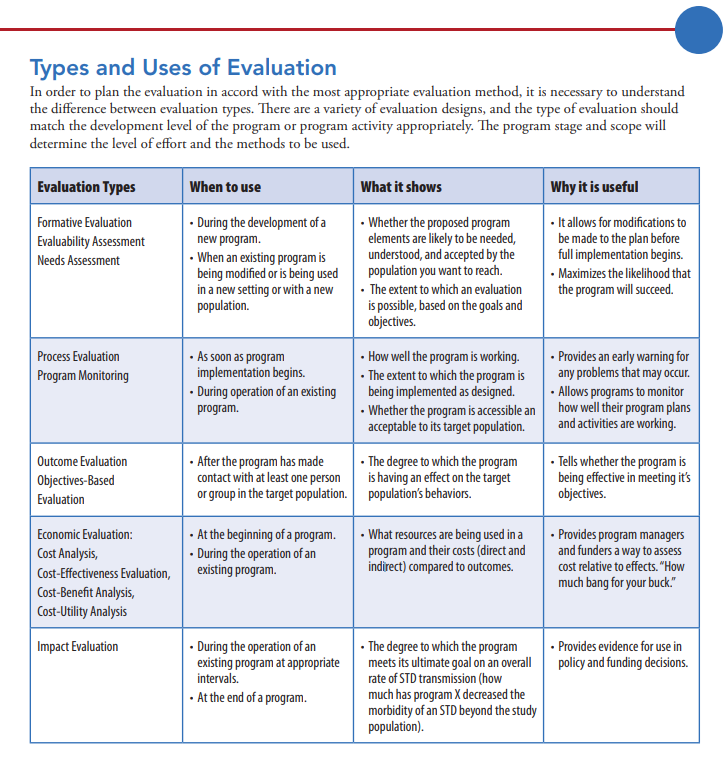evaluation planning & tools
We know that DO YOU is working. And we it’s working because we also know that deeply listening to and supporting youth can have a great impact on their lives and on entire communities. Best available research evidence, experiential evidence, and contextual evidence (which make up the Centers for Disease Control and Prevention’s framework for understanding evidence) all point to this being true. For more information on this framework for understanding evidence, check out the CDC’s website - with interactive tools, assessments, and guidance for practitioners - called Veto Violence.
Along with Veto Violence, the tools included in this section offer guidance on documenting and measuring change and then communicating that change to your partners and communities. This is exactly what evaluation seeks to do. Effective prevention programs incorporate evaluation strategies to provide important and ongoing feedback to the planning and implementation process. It is a crucial part of our work to sustain programming, to cultivate funding, and to seek buy-in from stakeholders and change-agents. In this section, you’ll have the opportunity to become acquainted with the types of evaluation and a few tools and resources that will help you to build effective program evaluation.
types of evaluation
Most often in prevention program evaluation we use process and outcome evaluation methods. This can be something as simple as collecting session feedback data (process evaluation) or it can be as complex as designing and facilitating focus groups (process and outcome evaluation). The main factors that distinguish types of evaluation - or evaluation strategies - from one another are: when the strategy is used, what type of information the strategy shows, and how it’s useful to understanding process and/or impact. The CDC provides us with a helpful breakdown of common evaluation strategies (below) that is derived from HIV and STI prevention but applies to our work in ending sexual and intimate partner violence and evaluating youth programs.
logic models
Logic models can assist you in program evaluation by providing a picture of how your program is intended to work. It identifies your programs main components and how they should relate to one another. Logic models include process and outcome components. These can also be helpful tools in describing and promoting your work (and the work of your community) to both current and potential partners. For examples of logic models, guides to developing one, and uses for ongoing program evaluation, click here.
Ohio Empowerment Evaluation/Prevention Toolkit
The Ohio Domestic Violence Network, in partnership with the Ohio Department of Health (ODH) Sexual Assault and Domestic Violence Prevention Program, released a Primary Prevention of Sexual and Intimate Partner Violence Empowerment Evaluation Toolkit. The Toolkit includes things like:
Tools for determining needs, resources, and capacity;
Stating outcomes and developing logic models;
Sample evaluation methods tailored to your programming;
Sample measures and data analysis tools;
And guides for compiling and presenting evaluation findings
The intended audience for this toolkit is local primary prevention providers, particularly those who are beginners or who have intermediate level skills in program evaluation. This toolkit could also be used by evaluation consultants as a source of training and technical assistance materials.
This toolkit is available for public access and public use.
Forum for Youth Investment: Measuring Youth Programming Assessment Guide
This guide was designed to compare the purpose, structure, content and technical properties of several youth program quality assessment tools. There are 10 youth programming assessment tools included in the resource that may be helpful to preventionists looking to evaluate their efforts.



